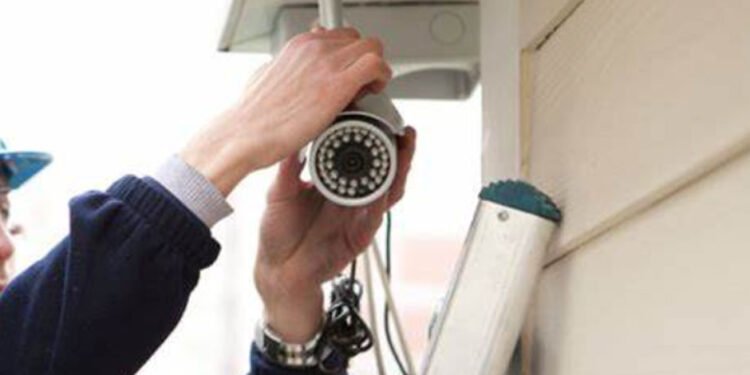In today’s world, home and business security are more important than ever. With the rise in smart technology, consumers have access to a variety of security solutions beyond traditional alarm systems. While ADT is one of the most well-known security providers, several companies offer comparable or even more advanced solutions. If you’re considering a smart security provider, understanding the key factors that differentiate them can help you make an informed decision.
Understanding the Security Landscape
The home and business security industry has evolved significantly over the past decade. Previously, security systems were limited to basic alarms and CCTV cameras. Today, smart security providers integrate artificial intelligence, real-time monitoring, and automation into their offerings. Companies like ADT, Deep Sentinel, Vivint, SimpliSafe, and Frontpoint cater to different customer needs, from full-service professional monitoring to customizable DIY setups.
What to Look for in a Smart Security Provider
When evaluating security providers, it’s essential to consider the following factors:
1.Monitoring Services
A key decision when choosing a security provider is whether you prefer professional monitoring or self-monitoring.
- Professional Monitoring: Companies like ADT offer 24/7 monitoring by trained security personnel who can dispatch emergency services. This service provides peace of mind but comes at a monthly cost.
- Self-Monitoring: Some security providers, such as SimpliSafe and Ring Alarm, offer self-monitoring options through mobile apps, allowing users to oversee security in real time without ongoing fees.
2.Smart Home Integration
Modern security systems should integrate seamlessly with existing smart home devices. Some providers, like Vivint, offer comprehensive smart home automation, including smart locks, lighting controls, and thermostat management. Others, such as SimpliSafe, focus primarily on security with limited smart home compatibility.
3.Equipment and Installation
- DIY vs. Professional Installation: Companies like ADT and Vivint require professional installation, ensuring proper setup and optimal performance. On the other hand, brands like SimpliSafe and Ring offer DIY installation for greater flexibility and cost savings.
- Customization: Look for companies that allow users to customize their security packages rather than forcing a one-size-fits-all approach.
4.Pricing and Contracts
- Upfront Costs vs. Subscription Fees: Some security providers offer equipment financing with long-term contracts, while others provide month-to-month plans.
- Hidden Fees: Be wary of activation fees, cancellation penalties, and maintenance charges that might not be apparent initially.
5.Reliability and Customer Support
A security system is only as good as its reliability and customer service. Companies like ADT have decades of experience with a robust customer support network. Others, such as Cove and Abode, emphasize customer-friendly policies like no-contract services and responsive support teams.
Popular Companies Like ADT
While ADT remains a leader in the industry, here are some notable alternatives:
Deep Sentinel
- Best for: AI-powered live security monitoring.
- Pros: Real-time human intervention, AI-driven threat detection, and proactive crime prevention.
- Cons: Higher subscription costs compared to standard alarm systems.
Vivint
- Best for: Smart home integration and automation.
- Pros: Cutting-edge technology, professional monitoring, and seamless integration with smart home devices.
- Cons: High upfront costs and contract requirements.
SimpliSafe
- Best for: DIY security solutions with no long-term commitments.
- Pros: Affordable pricing, no contracts, and easy installation.
- Cons: Limited smart home compatibility and fewer customization options.
Frontpoint
- Best for: Flexible and reliable security with strong customer service.
- Pros: High customer satisfaction, DIY installation, and cellular-based monitoring.
- Cons: Higher monthly costs compared to other DIY options.
Ring Alarm
- Best for: Budget-friendly security with video doorbell integration.
- Pros: Affordable pricing, Amazon Alexa compatibility, and optional professional monitoring.
- Cons: Privacy concerns related to Ring’s data-sharing practices.
How to Choose the Right Security Provider for You
Selecting the right security provider depends on your unique needs. Here’s a step-by-step guide to making an informed choice:
- Assess Your Security Needs: Do you need indoor/outdoor cameras, motion sensors, or full smart home automation?
- Set a Budget: Determine how much you’re willing to spend on equipment and monthly monitoring.
- Consider Installation Preferences: Decide whether you prefer DIY or professional installation.
- Check Reviews and Reliability: Look for customer reviews and ratings to gauge performance and service quality.
- Compare Contracts and Policies: Read the fine print to avoid hidden fees and restrictive long-term contracts.
Conclusion
With the vast number of security providers available, finding the best option requires careful research and consideration. Companies like ADT continue to set industry standards, but many alternatives offer equally effective or more customizable solutions. Whether you prioritize smart home integration, affordability, or professional monitoring, the right security provider will ensure peace of mind for you and your family.












